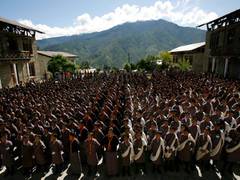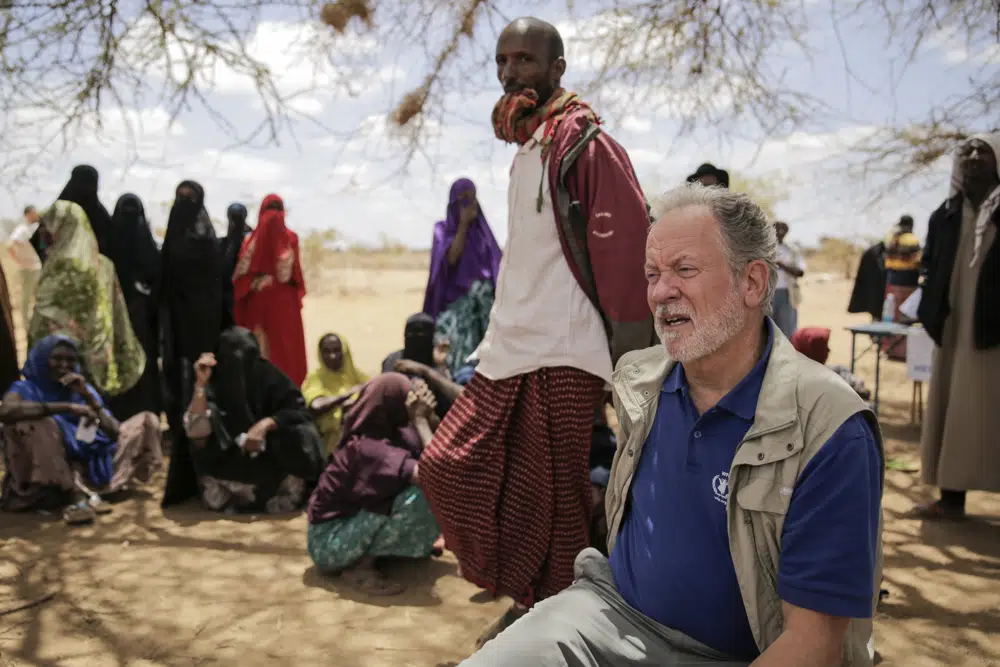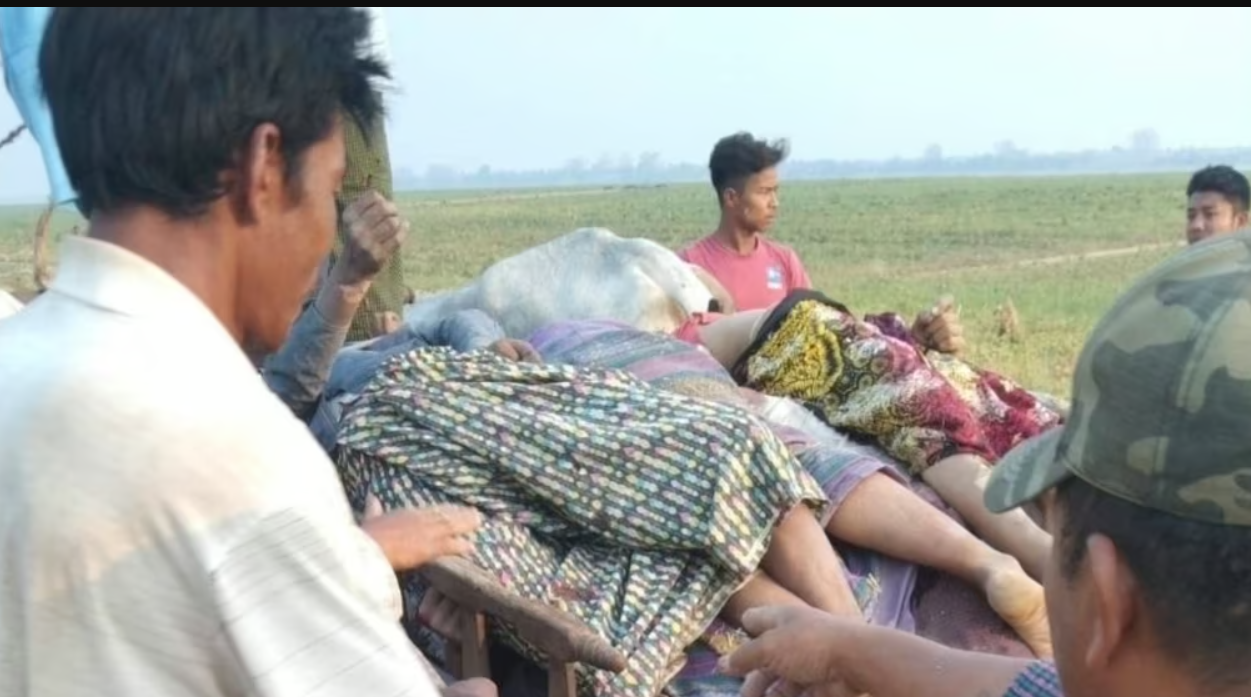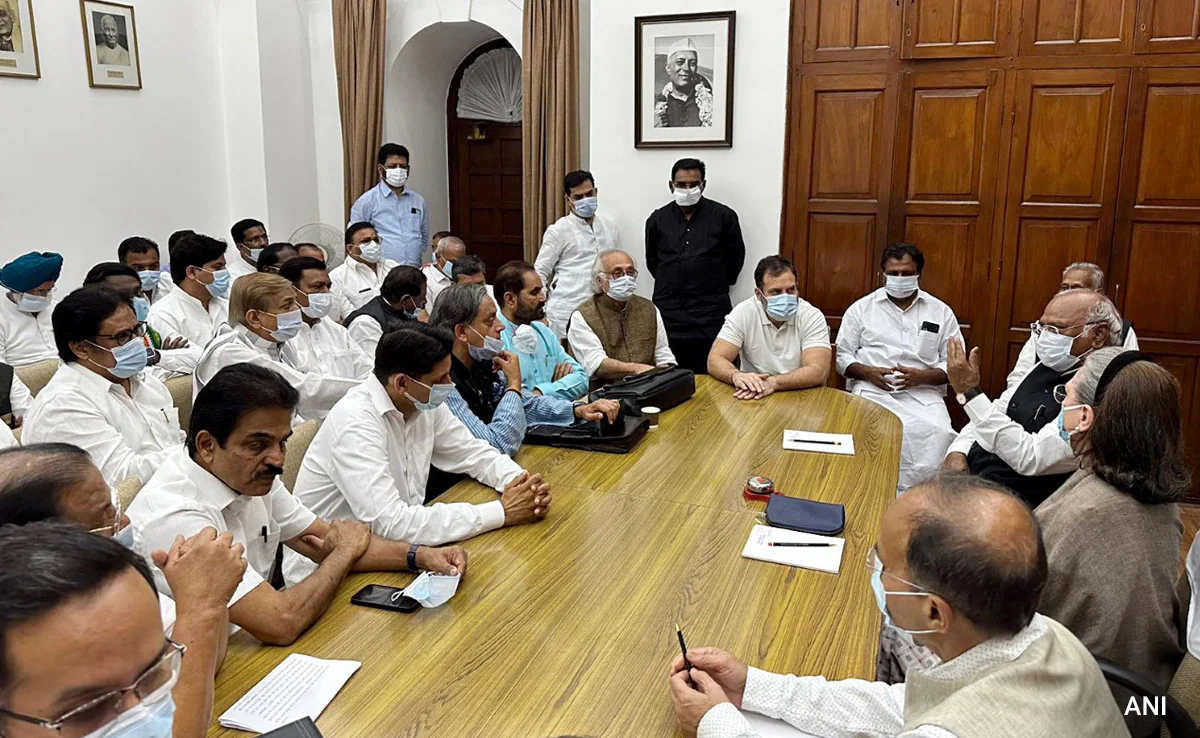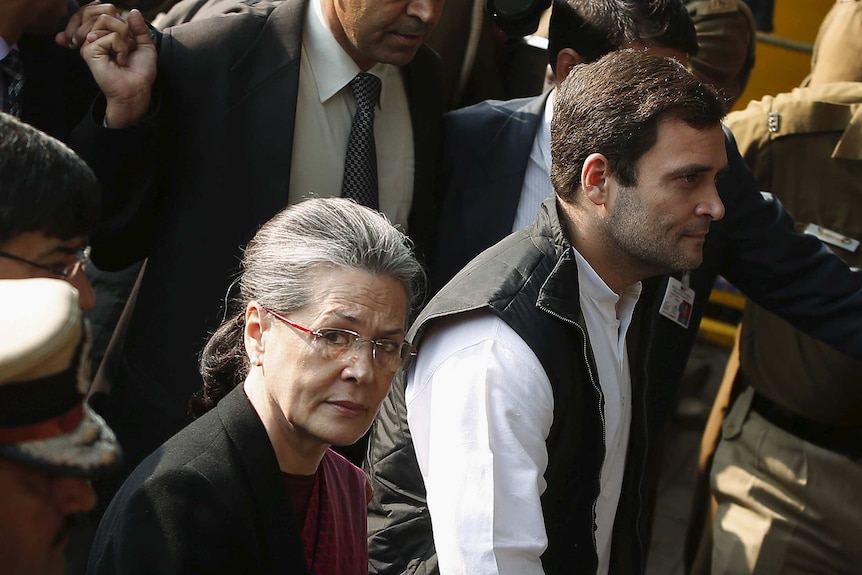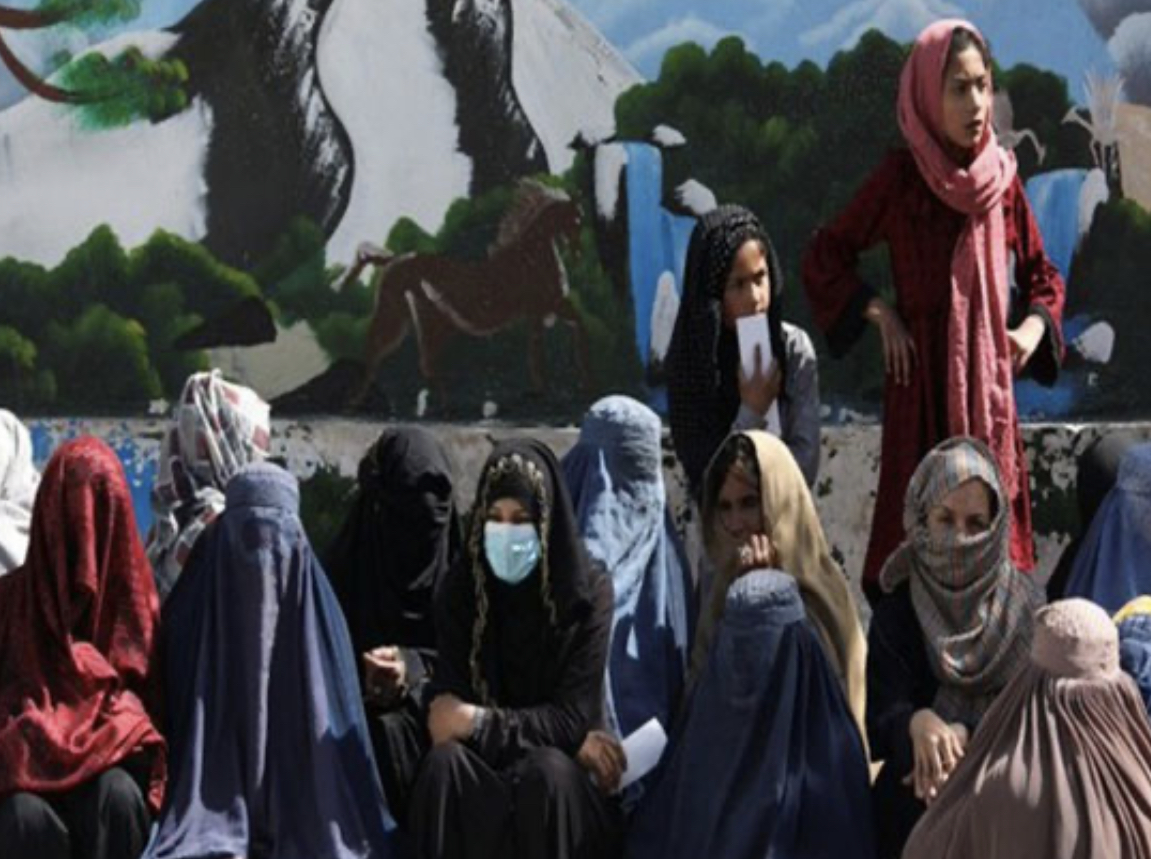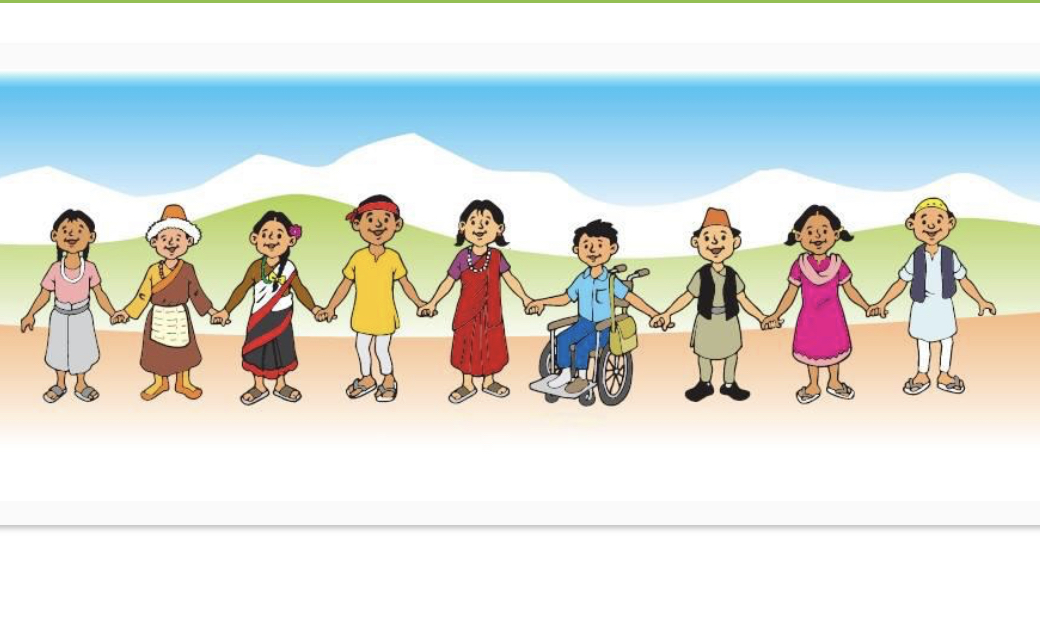WASHINGTON: Despite the Myanmar army’s denials, survivors and witnesses recently told VOA that during raids on their villages, soldiers used “systematic tactical force” to suppress resistance from villagers, including burning down houses, torture, rape, and mass killings.
According to witnesses, Tar Taing village in Sagaing township was raided by junta troops in early March, leaving 17 local people dead, all brutally tortured and killed. Pro-junta media outlets described the victims, who were shot in the back of the head, as “terrorists.”
Over the next 10 days, nearly 30 more civilians were killed in Nanneint village in the Pin Laung region of Shan State. Photos and a video taken of the incident, provided by the Karenni Nationalities Defense Force (KNDF) and verified by VOA, showed at least 21 bodies piled up around the Nanneint Monastery in Nanneint.
Disturbing pictures show mutilated corpses with severed limbs and heads placed in morbid arrangements on the ground. The junta immediately claimed that local fighters killed the villagers.
In a briefing to the United Nations General Assembly on the Myanmar situation on Thursday, Special Envoy Noeleen Heyzer said that since extending its state of emergency on Feb. 1, the junta has increased the use of force with more aerial bombing, burning of civilian homes and other “grave human rights violations to maintain its grip on power.”
According to the envoy, martial law has been imposed in 47 townships, and the regime has begun arming citizens deemed loyal to the regime.
The United States imposed its latest round of sanctions on the junta on Friday to help address its atrocities. The sanctions target the supply of jet fuel to the military and its allies in the Southeast Asian country, the U.S. Treasury Department said in a statement that identified two people and six entities connected to the junta.
According to the Treasury’ statement, those sanctioned are accused of enabling continuing atrocities, including through the import, storage and distribution of jet fuel to the military.
Raid on Tar Taing
Tar Taing is a small fishing village in the Sagaing region of central Myanmar, with a population of about 400 people. Survivors of the massacre there told VOA, “When the army surrounds a village, it has a tactical plan; it does not go in as a group. Soldiers surround the village in columns, spread out, and each column has an assignment. There is a column that arrests people, a column that enters houses and searches for things, and a column that tortures and kills people.”
According to Associated Press sources, soldiers in Myanmar rampaged through several villages, raping, beheading and killing in this area. Villagers familiar with the junta’s tactics describe the column sent to do the killing as “the demon column.”
Maung Zaw from Tar Taing village, whose 43-year-old wife Ma Swe Swe Oo was raped and killed by the soldiers in the “demon column,” told VOA by phone on Saturday that he saw his wife’s dead body, “with my own eyes. Her inner bodice was falling out of its hooks, I could see scratches on her nipples … there was male semen all over her body and in her vagina.”
“I felt devastated and heartbroken. My wife was killed. I am thinking about how me and my children will survive without her,” Maung Zaw said.
Maung Zaw recounted how he and his children escaped and hid in the jungle, but his wife was rounded up by the soldiers along with other villagers. “They captured them and held them in a monastery for the entire night.”
The next morning, March 2, soldiers took the hostages, including Maung Zaw’s wife and two other women, led them to another area and killed them.
Another villager who collected the bodies told VOA the victims of the mass murder were found dumped in a nearby village called Nyaung Yin in Myinmu township, separated from Tar Taing by the Mu River.
“All of them were villagers,” the man said, requesting anonymity for fear of government reprisal. “The soldiers took them as hostages and killed them. They shot five men in the mango grove. They shot their chests and heads. We found nine more bodies in another place on March 2. Three women and six men. We saw two more bodies the next day. The faces are no longer visible because they were brutally tortured. We burnt all of the dead bodies after we identified their names.”
According to Myanmar Now, currently publishing bilingual Burmese and English articles on its online portal, the Tar Taing massacre is “one of the worst massacres” since the military coup in February 2021.
As of this report, the junta has not released an official statement about the mass killings in Tar Taing Village. Their social media outlets, such as one on Telegram, refer to the raids as fighting against the presence of the People’s Defense Forces (PDF) in the villages. Locals told VOA there were no arms or PDF fighters in their village, only unarmed fishermen.
The PDF comprises small armed groups of young protesters who are easily overrun by the junta’s military force.
Mass killing in Shan State
Another mass killing took place in southern Shan state on March 11. A Buddhist monastery in Nanneint was attacked, leaving 22 civilians dead, including three monks. Their bloody bodies were left displayed in rows against the monastery walls in pools of blood.
VOA interviewed Khun Bedu, chairman of the Karenni Nationalities Defense Force, also known as the KNDF, from bordering Karenni state. The group sent its members to the massacre site to document the killings and provided photo and video evidence to international news outlets including VOA.
The KNDF is an armed resistance group formed in response to the 2021 Myanmar coup. In his interview via Zoom last week, Khun Bedu said that bullets found near the victims were of a type used by the Myanmar military, substantiating the reports of government responsibility. After the soldiers left Nanneint village the next day, March 12, KNDF and local Pao ethnic PDF forces arrived at the monastery where they found the aftermath of the killings.
“Evidence shows the killing of the villagers was carried out by the junta. The type of bullets and the manner of the killings, with civilians being executed along the walls of the monastery, points to military involvement. Medical records show there were scratches on their backs and cigarette burns on their bodies.
“We found bodies with mutilated legs, and smashed hands; evidence that they were brutally tortured before being killed. The victims were finally shot in the head or the mouth. It is all documented, and verified by doctors on site,” Bedu noted.
A day before the mass killing in the monastery, Bedu said, “fighting had broken out in Nanneint Village on March 10 between the military and combined forces of local resistance armed groups.”
That fighting resulted in the military shelling and launching airstrikes directly at the village, prompting many of the civilians to take refuge in the monastery where they were found and killed. Other villagers “left for safer places,” Bedu said.
Responsibility for mass killings
In a response to VOA by phone on March 12, General Zaw Min Tun, a spokesperson for the junta, confirmed there was a massacre at Nanneint Monastery but said it was an act between competing armed groups and that the military, known as the “Tadmadaw,” was not involved.
He claimed that military and armed civilian groups cooperating in the area were only providing “security and law enforcement.”
“These KNDF groups, the terrorist groups, have been more active in the Pao area. … We have seen some deaths there. The issue is between them, but they blame the Tatmadaw.”
In a Zoom interview, National Unity Government Human Rights Minister Aung Myo Min told VOA that in the two years since the military coup there have been at least 64 civilian massacres of five people or more carried out by the junta. According to Min, mass killing is “a pattern by the junta attacking its own civilians.”
He added, “The killings are a war crime committed by the military.”
The NUG has called for an expansion of the International Criminal Court investigations into human rights abuses in Myanmar to include not only the treatment of the Rohingya, but also the killing of ethnic resistance groups all over Myanmar.
(VOA/Ingyin Naing)





